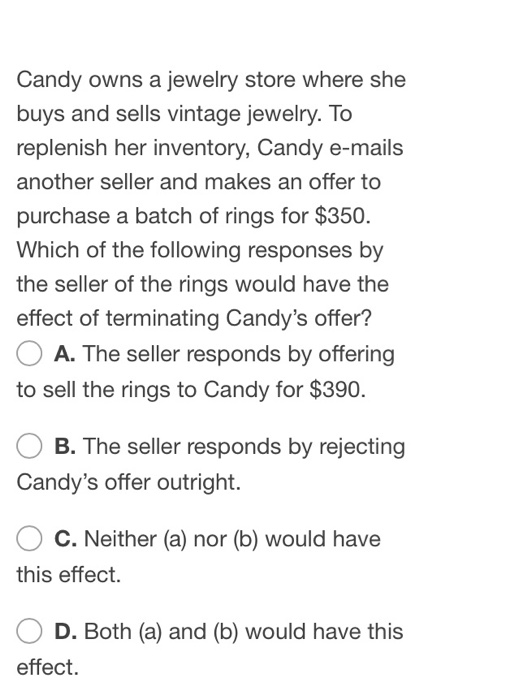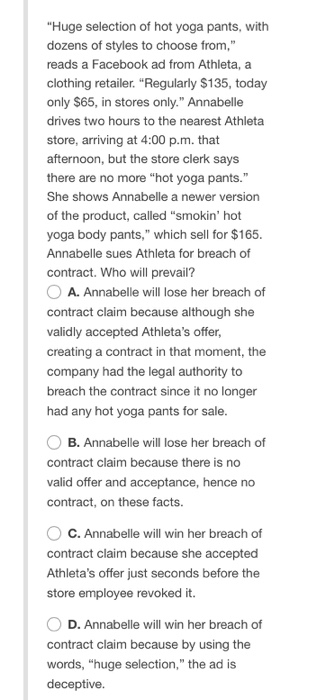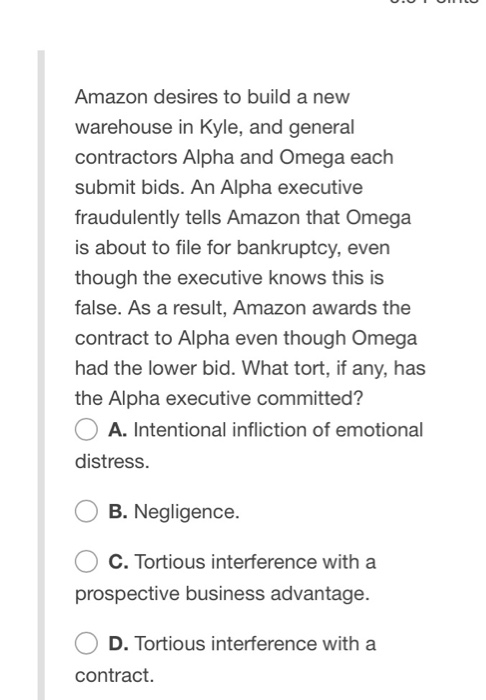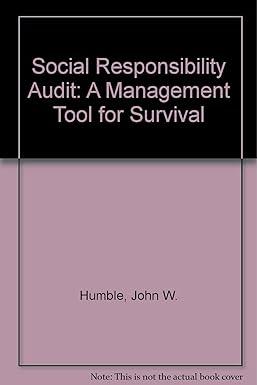Candy owns a jewelry store where she buys and sells vintage jewelry. To replenish her inventory, Candy e-mails another seller and makes an offer to purchase a batch of rings for $350. Which of the following responses by the seller of the rings would have the effect of terminating Candy's offer? A. The seller responds by offering to sell the rings to Candy for $390. B. The seller responds by rejecting Candy's offer outright. C. Neither (a) nor (b) would have this effect. D. Both (a) and (b) would have this effect. "Huge selection of hot yoga pants, with dozens of styles to choose from." reads a Facebook ad from Athleta, a clothing retailer. "Regularly $135, today only $65, in stores only." Annabelle drives two hours to the nearest Athleta store, arriving at 4:00 p.m. that afternoon, but the store clerk says there are no more "hot yoga pants." She shows Annabelle a newer version of the product, called "smokin' hot yoga body pants," which sell for $165. Annabelle sues Athleta for breach of contract. Who will prevail? A. Annabelle will lose her breach of contract claim because although she validly accepted Athleta's offer, creating a contract in that moment, the company had the legal authority to breach the contract since it no longer had any hot yoga pants for sale. B. Annabelle will lose her breach of contract claim because there is no valid offer and acceptance, hence no contract, on these facts. C. Annabelle will win her breach of contract claim because she accepted Athleta's offer just seconds before the store employee revoked it. D. Annabelle will win her breach of contract claim because by using the words, "huge selection," the ad is deceptive. Amazon desires to build a new warehouse in Kyle, and general contractors Alpha and Omega each submit bids. An Alpha executive fraudulently tells Amazon that Omega is about to file for bankruptcy, even though the executive knows this is false. As a result, Amazon awards the contract to Alpha even though Omega had the lower bid. What tort, if any, has the Alpha executive committed? A. Intentional infliction of emotional distress. B. Negligence. C. Tortious interference with a prospective business advantage. D. Tortious interference with a contract









